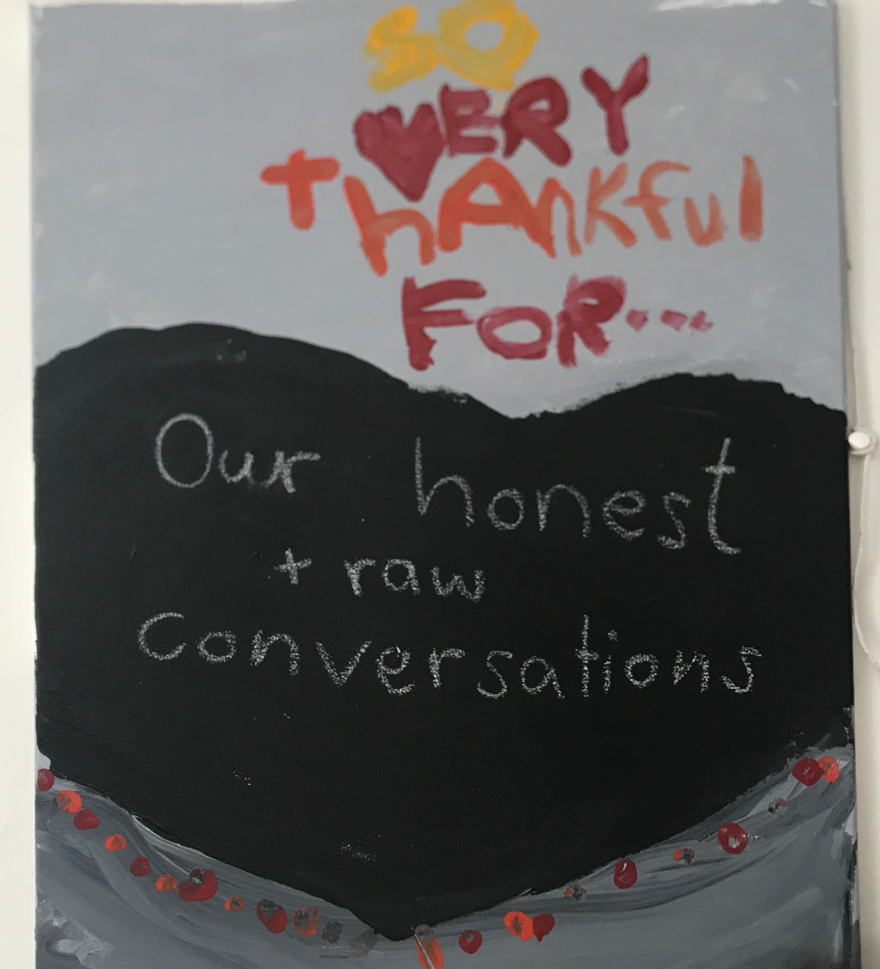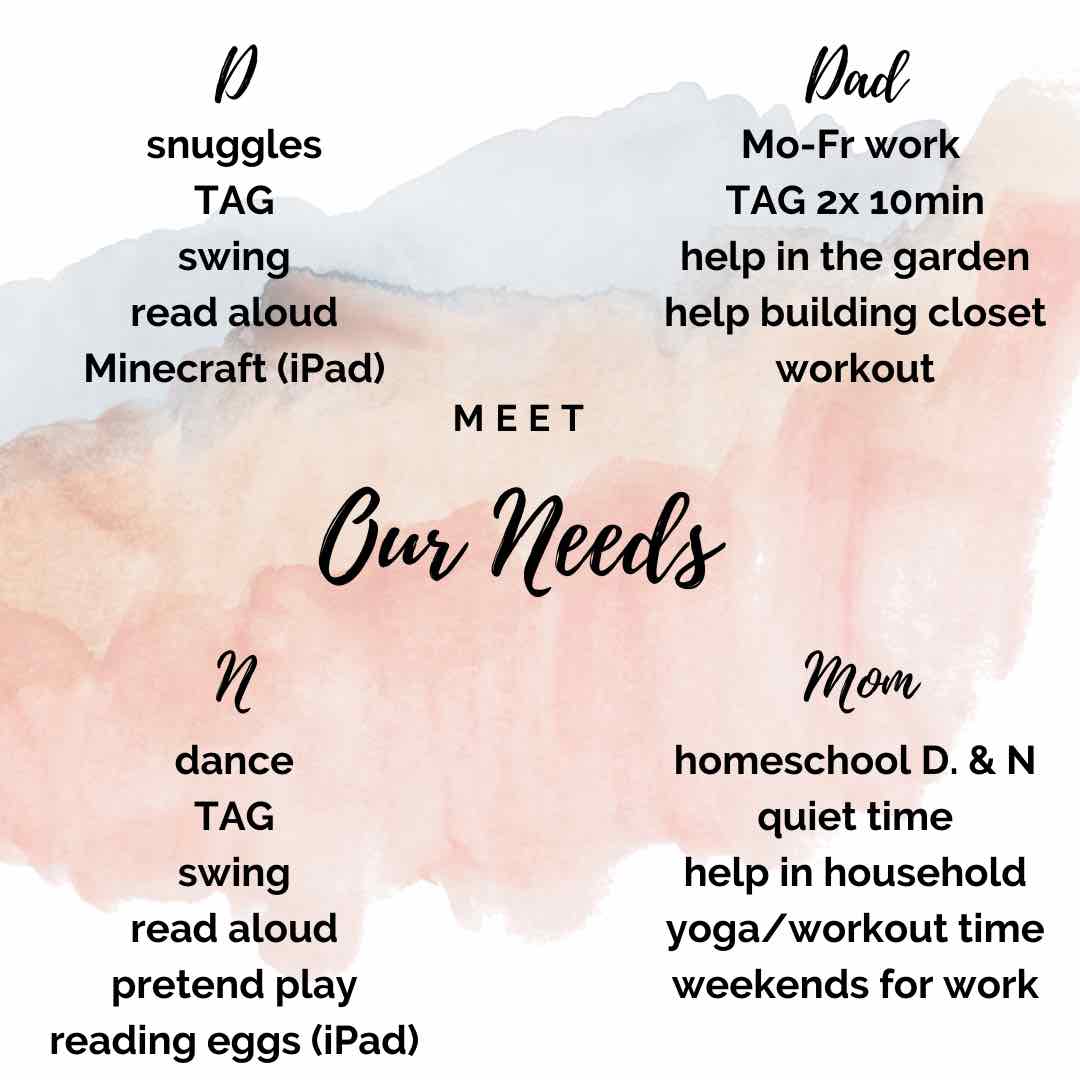The 5 most valuable lessons YOU are learning alongside YOUR CHILDREN right now. Hint: It has nothing to do with “school subjects”.

You might not have chosen to homeschool like we did, but rather have been pushed into “doing school at home”. I’m going out on a limb here and argue that our situations might be more alike than different right now, so bare with me.
By taking away “school” we immediately eliminated the two hotspots of conflict and frustration in our home. One: getting ready in the morning on time and, two: getting ready for bedtime so the kids could get up in time the following morning. By breaking this vicious circle our family dynamics and relationship started to improve immediately. You might be experiencing this as well. So what skills are our kids learning right now?
1. How to negotiate successfully
By spending more time together, you and your kids have to find solutions on how a day would ideally flow. One of the first things we needed to address with the kids while sheltering-in-place was to take inventory of each family member’s needs.
Together we made a list of needs while sitting on the swing (because that’s where my kids can think best) and then tried to allocate time for each item on the list using sticky notes. This way we made sure everyone felt heard and understood, it was important to my kids to get a seat at the table to get their buy-in.


2. How to set boundaries and instill respect for others
Sometimes we still run into hick-ups where my kids forget about my needs, because their world still revolves around themselves (4 & 7 years old). However, I can remind them about our list of needs and they are likely to be ok to wait until it’s their turn. This “exercise” taught them to listen, to ask for what they need, to set boundaries and to (re-)negotiate a respectful flow for the day at home.
3. How to deal with difficult emotions
Not going to school freed up so much time. It was almost as if days slowed down. Nowhere to run to anymore, nowhere to be late to (until we started doing some classes, at least). My kids had so much unstructured time at their hands that they got to know themselves really well.
Your kids are doing the same work right now with the added difficulty of living through grief. They are grieving the loss of their “normal”. All of a sudden they lost their social structure of school and not being able to see their friends. Lots of different feelings will come up for them. As will for you. Your kids not only feel their feelings, they are experts in picking up on your feelings. So if you’re feeling anxious, your kids might act up.
Uncertainty leads to conspiracy and can present itself as irritability and anger. Their behavior is telling you how they feel and it is a scream for help. Make sure to take time to talk about how you feel and that you understand how they are feeling right now. Tell them while we can’t change the circumstances we can change how we react to them. I love the cloud analogy, our feelings they come and go like clouds floating in the sky. One moment we are sad another moment we are calm/happy/excited… you get the idea. Feelings, like thoughts, don’t define us; they are signals to be interpreted and we can influence the way we feel by the activities we engage in.
My son is learning how to use the iPad. And I don’t mean the programs and such, but to notice how he feels when it is time to unplug. How he is all antsy and easily upset right after tech use. I make it a point to talk about it, and I offer to find solutions to make him feel better in the transition time. So he identified that climbing the rope in our backyard is what he needs to do to change how he feels. I think he realized that he needs to feel his body in a healthy way. This has helped so much but is an ongoing discussion as we struggle with more tech use these days. I can see how asking these questions has helped him already in being more resilient. Another technique we use is to establish what he wants to do after he’s done playing on the iPad. This gives him something to look forward to and can make transitions easier.
4. How to develop resilience
When feeling stuck in difficult emotions, it helps to add in a gratitude practice or meditation. The practice of reminding ourselves of the good things we have in life has a huge and enduring impact on our psychological well being. Our family likes to include this in our dinner time. If your kids are writing already, they could start a gratitude journal . Taking a few minutes to write down 3-5 things they are grateful for at bedtime has been shown to rewire our brain and help us have a more positive outlook on life.
5. How to find creative solutions to problems
Lastly, the scarcity of resources we currently experience call for finding creative solutions. For our kids it means, to build makeshift toys out of recycling, to make art on cardboard, more imaginary play,...
For us parents it revolves around making work possible while taking care of our kids. I am currently working on my business, and so we decided that my husband would take care of the kids on weekends while I work in the "home office". It is still a process for all to learn the new framework, but I can see the kids getting used to this model.
This is a difficult time for all of us, but I can see some good lessons learned through the experience of having to create a joyful life inside our homes. All the concepts your kids are learning now, and you are needing to tap into, belong to the area we call Emotional Intelligence. I am dedicated to helping parents grow their Emotional Intelligence at work because it has an invaluable impact on their personal life as well, coming "full circle".

0 comments
Leave a comment